第73章 MAURICE KIRKWOOD'S STORY OF HIS LIFE(9)
"One who faints is dead if he does not I come to,'and nothing is more likely than that too susceptible lovers have actually gone off in this way.Everything depends on how the heart behaves itself in these and similar trying moments.The mechanism of its actions becomes an interesting subject,therefore,to lovers of both sexes,and to all who are capable of intense emotions.
"The heart is a great reservoir,which distributes food,drink,air,and heat to every part of the system,in exchange for its waste material.It knocks at the gate of every organ seventy or eighty times in a minute,calling upon it to receive its supplies and unload its refuse.Between it and the brain there is the closest relation.
The emotions,which act upon it as we have seen,govern it by a mechanism only of late years thoroughly understood.This mechanism can be made plain enough to the reader who is not afraid to believe that he can understand it.
"The brain,as all know,is the seat of ideas,emotions,volition.
It is the great central telegraphic station with which many lesser centres are in close relation,from which they receive,and to which they transmit,their messages.The heart has its own little brains,so to speak,--small collections of nervous substance which govern its rhythmical motions under ordinary conditions.But these lesser nervous centres are to a large extent dominated by influences transmitted from certain groups of nerve-cells in the brain and its immediate dependencies.
"There are two among the special groups of nerve-cells which produce directly opposite effects.One of these has the power of accelerating the action of the heart,while the other has the power of retarding or arresting this action.One acts as the spur,the other as the bridle.According as one or the other predominates,the action of the heart will be stimulated or restrained.Among the great modern discoveries in physiology is that of the existence of a distinct centre of inhibition,as the restraining influence over the heart is called.
"The centre of inhibition plays a terrible part in the history of cowardice and of unsuccessful love.No man can be brave without blood to sustain his courage,any more than he can think,as the German materialist says,not absurdly,without phosphorus.The fainting lover must recover his circulation,or his lady will lend him her smelling-salts and take a gallant with blood in his cheeks.
Porphyro got over his faintness before he ran away with Madeline,and Cesar Birotteau was an accepted lover when he swooned with happiness:
but many an officer has been cashiered,and many a suitor has been rejected,because the centre of inhibition has got the upper hand of the centre of stimulation.
"In the well-known cases of deadly antipathy which have been recorded,the most frequent cause has been the disturbed and depressing influence of the centre of inhibition.Fainting at the sight of blood is one of the commonest examples of this influence.Asingle impression,in a very early period of atmospheric existence,--perhaps,indirectly,before that period,as was said to have happened in the case of James the First of England,--may establish a communication between this centre and the heart which will remain open ever afterwards.How does a footpath across a field establish itself?Its curves are arbitrary,and what we call accidental,but one after another follows it as if he were guided by a chart on which it was laid down.So it is with this dangerous transit between the centre of inhibition and the great organ of life.If once the path is opened by the track of some profound impression,that same impression,if repeated,or a similar one,is likely to find the old footmarks and follow them.Habit only makes the path easier to traverse,and thus the unreasoning terror of a child,of an infant,may perpetuate itself in a timidity which shames the manhood of its subject.
"The case before us is an exceptional and most remarkable example of the effect of inhibition on the heart.
"We will not say that we believe it to be unique in the history of the human race;on the contrary,we do not doubt that there have been similar cases,and that in some rare instances sudden death has been the consequence of seizures like that of the subject of this Report.
The case most like it is that of Colone Townsend,which is too well known to require any lengthened description in this paper.It is enough to recall the main facts.He could by a voluntary effort suspend the action of his heart for a considerable period,during which he lay like one dead,pulseless,and without motion.After a time the circulation returned,and he does not seem to have been the worse for his dangerous,or seemingly dangerous,experiment.But in his case it was by an act of the will that the heart's action was suspended.In the case before us it is an involuntary impulse transmitted from the brain to the inhibiting centre,which arrests the cardiac movements.
"What is like to be the further history of the case?
"The subject of this anomalous affliction is now more than twenty years old.The chain of nervous actions has become firmly established.It might have been hoped that the changes of adolescence would have effected a transformation of the perverted instinct.On the contrary,the whole force of this instinct throws itself on the centre of inhibition,instead of quickening the heart-beats,and sending the rush of youthful blood with fresh life through the entire system to the throbbing finger-tips.